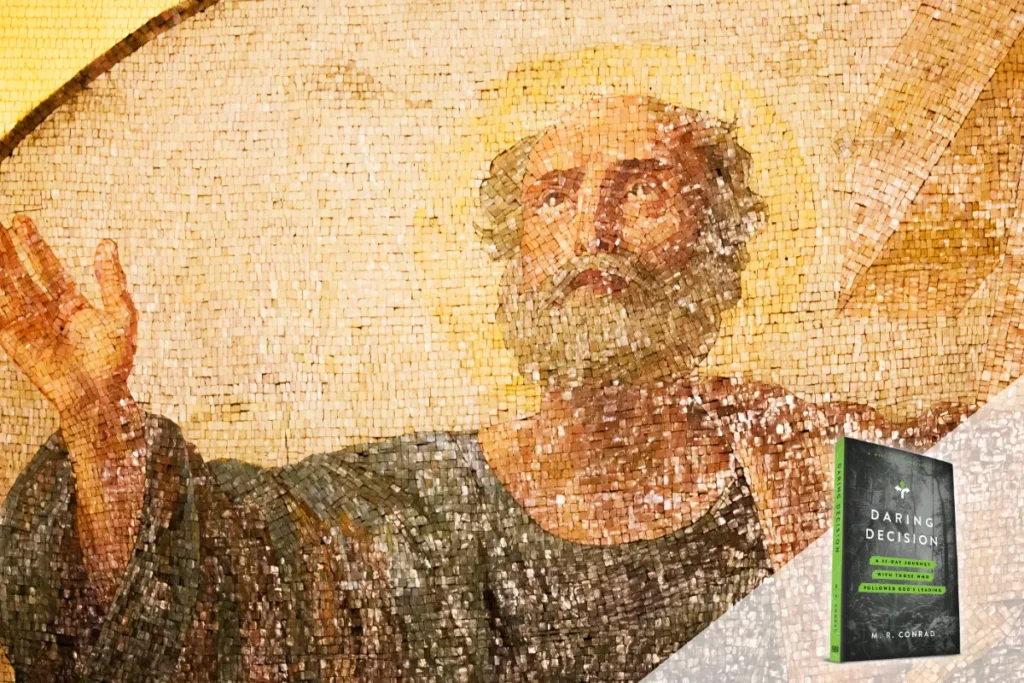
Blog
Beyond the Ballot: Hope in a Higher Kingdom

This excerpt by Joe Tyrpak comes from Gospel Meditations for Christmas (Day 16: “Political Optimism”).
“May all kings fall down before him, all nations serve him!” (Psalm 72:11)
The birth of Jesus was a political event, and celebrating His birth should affect our political outlook.
What comes to your mind when you hear the word politics? I’d guess that most of us don’t respond very positively. We tend to think of politics as hopelessly controversial and of politicians as disingenuous schmoozers.
Therefore, many Christians try to ignore politics, while others seem to unhealthily feed on the frustrations produced by daily intake of political controversies and exposés.
If we’re going to think rightly about politics, we must begin by acknowledging that God created politics.
Adam’s Political Failure
Politics—or things pertaining to citizenship such as land, law, and leaders—was invented by God, not people. At creation God Himself gave Adam land to protect, law to enforce, and leadership with which to accomplish it.
Yet, because Adam failed miserably in his civic duties, politics have been horribly corrupted by selfish people ever since, just like everything else in God’s originally good creation.
Solomon’s Political Insight
Psalm 72 is a political psalm, written by a king about a king. It proves beyond a shadow of a doubt that, despite all his faults, King Solomon was truly wise. He was a monumental theologian. What he sings in Psalm 72:17 proves that he held the key that unlocked the whole Old Testament.
In that simple, beautiful sentence, Solomon reveals that he understood that the two greatest promises that God had made—the first to Abraham in Genesis 12:1–3 and the second to David in 2 Samuel 7:12–16—were basically one promise. A thousand years before Jesus came to earth, Solomon understood that Abraham’s promised Descendant and David’s promised Descendant were one and the same Individual.
Jesus’ Political Triumph
In Psalm 72 Solomon melodically prays for the coming Abrahamic-Davidic King through Whom God would redeem and bless the world. Solomon begs God to send this King Who would reign righteously, eternally, internationally, compassionately, and admirably (vv. 1–4, 5–7, 8–11, 12–14, and 15–17, respectively).
We who have trusted Jesus know that these five descriptions perfectly fit Him.
Jesus alone is righteous, and by His death and resurrection He “crushed the oppressor” (Psalm 72:4).
Jesus can reign eternally because He alone can claim, “I am the first and the last, and the living one. I died, and behold I am alive forevermore” (Revelation 1:18).
Jesus will return to earth and “reign forever and ever” as the international Monarch, the “King of kings” (Revelation 11:15; 19:16).
We also know that King Jesus personally cares for our precious lives (Psalm 72:14). In fact, our King so values our blood that He spilled His own blood for us. Jesus had such piteous compassion on the desperately needy—those who couldn’t save themselves—that He chose to redeem our lives with His own precious blood!
So we will forever admire Him (Revelation 1:5–6).
You see, King Solomon is longing for King Jesus!
You should regularly sing Psalm 72. (Christians who sing “Jesus Shall Reign,” Isaac Watts’ version of Psalm 72, sing this psalm, often without realizing it.) Singing this psalm will reorient you politically. It will continually remind you that, as Chuck Colson famously put it, “the kingdom of God does not arrive on Air Force One.” And if we regularly sing Psalm 72, we will be praying like Jesus commanded us: “Your kingdom come!”
Let the gospel shape your ultimate political outlook.
Explore the whole book!
Christmas, rightly understood, is about the incarnation. God becoming man in the person of Jesus Christ is one of the epic events of human history. The incarnation is no less essential to the Christian faith than the crucifixion or the resurrection. These 31 daily readings are theological, devotional, and practical. They will help you move beyond the mere nostalgia of Christmas and worship the Lord Jesus—the Word made flesh!













